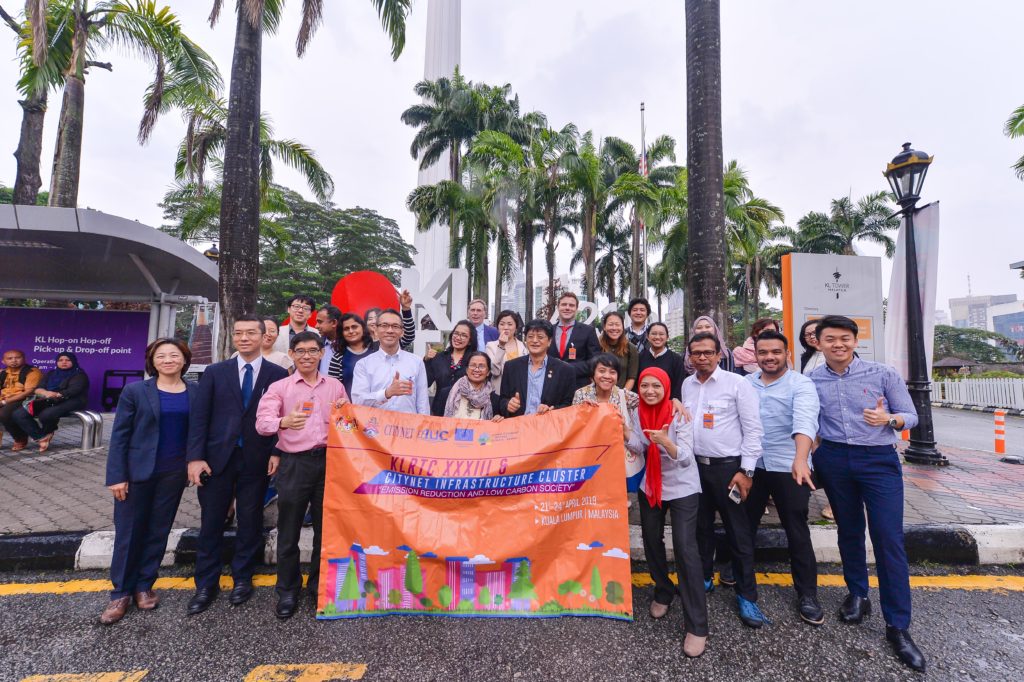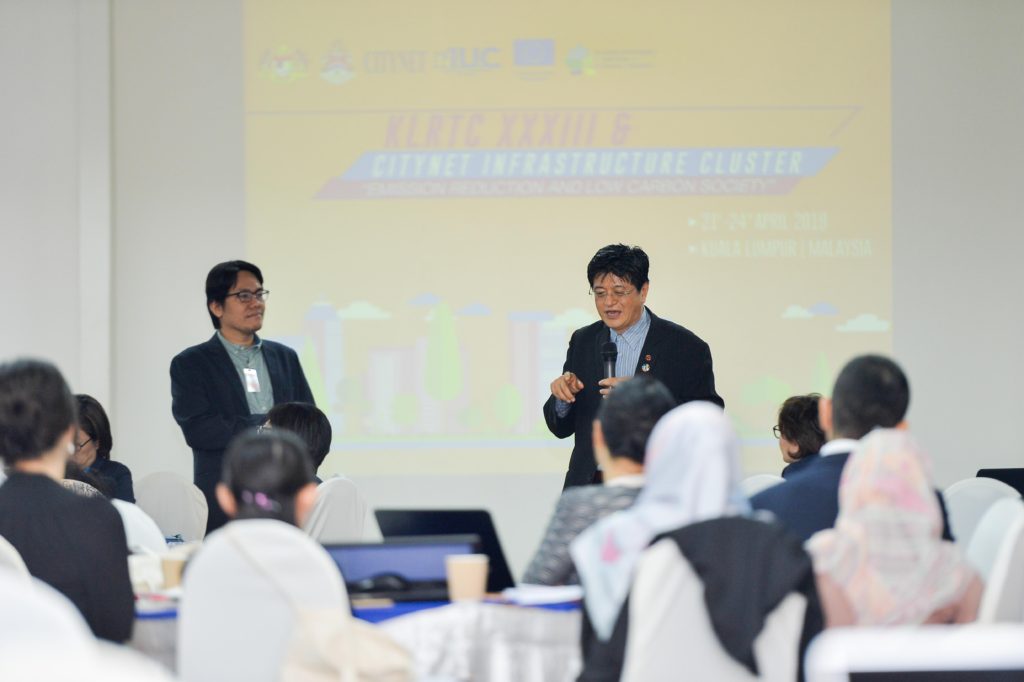
CityNet in partnership with Kuala Lumpur City Hall, European Union’s International Urban Cooperation – Asia Project (IUC-Asia), and Global Covenant of Mayors (GCoM) held the XXXIII Kuala Lumpur Regional Training Centre Workshop and Module 2 of IUC-Asia training on GHG Emission Reduction and Low Carbon Society.
The Workshop that took place from April 22-24, 2019, was attended by more than 70 participants from across Asia and addressed the following key points:
- Basic Principles and Climate Actions on GHG Emission Reduction
- Climate Action Plan in Asia Pacific
- Low Carbon Solution Policies
- Strengthening Infrastructure to Support the Implementation of Low-Carbon Strategies

Setting the discussion tone, the workshop started with a keynote from Prof. Dr. Ho Chin Siong from the Universiti Teknologi Malaysia establishing the understanding of climate change impacts and emission reduction potential in Asian cities. The highly practical workshop also featured lectures from the World Resources Institute China and C40 Cities that showcased the GHG inventory tools that could be adopted by participating cities.
Asian Development Bank and Institute for Transportation and Development Policy further enriched the discussion by addressing the visions and strategy to develop a low-carbon society through illustrations of low-carbon infrastructure cases from various Asian cities that look into the local circumstances and needs specifically focusing on access to alternative energy and sustainable mobility.
This topic is highly relevant based on the recent infrastructure cluster study towards CityNet member cities conducted by CityNet in collaboration with the Korea Associates Business Consultancy. The study reveals that most Asian cities have not yet measured greenhouse gas emissions and lack access to data on emissions, particularly in regard to key sectors such as transportation. In addition, the study shows that in Asian cities mobility accounts for about 20% of emissions and 33% of carbon emissions come from buildings.

To kick-start the workshop, international participants had the experience to take part in the Kuala Lumpur Car Free Morning on 21st April from 7am to 9am. It is the city of Kuala Lumpur’s initiative held on every first and third Sunday of the month that features closed roads for people of all walks of life to cycle, run, skateboard, rollerskate, rollerblade or simply walk.
During the workshop, CityNet operated a pavilion to promote Urban SDG Knowledge Platform activities and to reach out to new partners. Also, a survey was conducted to understand the cities’ needs regarding Smart Innovation and Urban Development to build up the program for the coming workshop on “Smart Cities”.
Closing the workshop on behalf of the Kuala Lumpur Mayor, the Director of Infrastructure Planning Department Sulaiman Mohamed said that Kuala Lumpur City Hall will try their best to provide more trainings to ensure that the Asia Pacific region would be able to keep themselves the latest, most updated initiatives of urban solutions and innovations.
One of the participants, the Environmental Officer (Secretariat Environment and Disaster Management Committee) of Bharatpur Sushila Regmi Adhikari expressed her positive remarks about the workshop being the best platform for participants to share best practices and urban challenges with other cities from different countries.

